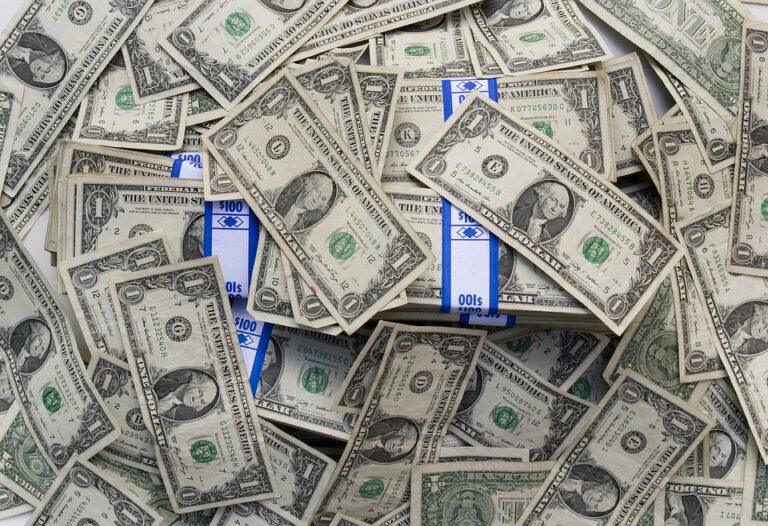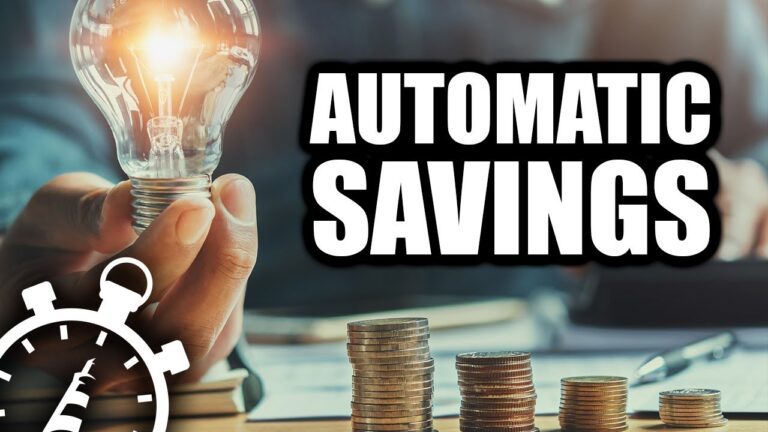Last updated Mar. 2, 2023 by Peter Jakes
Did you realize that tens of millions of Americans do not have any bank account? Some people believe they do not have enough money to use a bank. Others would rather deal with cash than with checks or debit cards.
Following the 2008 financial crisis, some people, particularly millennials, acquired a fear of banks. And hence, they lost out on the benefits of having a bank account.
Nonetheless, almost everyone, from teenagers on up, can benefit from opening a checking account. In this piece, we’ll look at the advantages of having a checking account and the best practices that make having one such a good idea.
What Is a Checking Account?
A checking account is an account at a bank where you can keep the money for day-to-day expenses. With a debit card, you can get the cash in these checking accounts at an ATM, a point-of-sale terminal, or online.
Checking accounts are different from savings accounts and retirement accounts because checking account holders can take money out and spend it however they want. In the United States, anyone over 18 can open a checking account, and minors over 14 can be co-account holders on joint accounts.
How Does a Checking Account Work?
You can put money into a bank checking account or direct deposit and then take the money out or spend it as needed. You can get cash from an ATM and pay for things in stores and online with a debit card. Paper checks can also be used instead of cash, though people don’t use it as much these days.
Depending on what kind of account you get, you may have to pay fees for your checking account. But the most common fees are service fees every month and fees for going over your limit.
Monthly service fees are the checking account maintenance fees that must be paid if you don’t maintain a certain balance in the account. Many banks don’t charge this fee for people who use direct deposits.
Overdraft fees: Banks charge them when the account balance is not enough to cover a charge. Overdraft protection is something that many banks offer to people who have both a checking account and a savings account.
Checking accounts gives you liquidity, which is the same thing as cash. However, they usually don’t earn interest because they are meant for everyday purchases and payments.
Related: Savings vs. Checking account: What are the differences
Different Types of Checking Accounts
You can choose from five main types of checking accounts based on how you plan to use them.
1. Traditional (Basic) Checking Account
Basic checking is a regular account for depositing money and making purchases. There is usually a minimum balance and monthly service fee. There are several different types of checking accounts, but checking account basics include:
● Checking Account Deposits.
You can put money and checks in an account in person or through an ATM. You can also deposit checks through a bank’s mobile app or online. You can also move money from one bank account to another or set up a direct deposit from your employer.
● Checking Account Withdrawals
You can get cash from an ATM or a person. Some accounts don’t limit how often you can take money out or how much you can take out at once. However, depending on the type of account or the withdrawal, like an ATM, there may be limits on how much you can take out.
● ATM/debit cards
With a debit card, you can buy things in a store or online and get cash from an ATM. After opening your account, it usually takes 7-14 business days to get your debit card. Once it’s activated, it’s ready to use.
● Electronic Funds Transfer
With an electronic funds transfer (EFT), also called a wire transfer, money can be sent directly to your bank account instead of waiting for a check to arrive in the mail. Most banks don’t charge extra to make an EFT anymore.
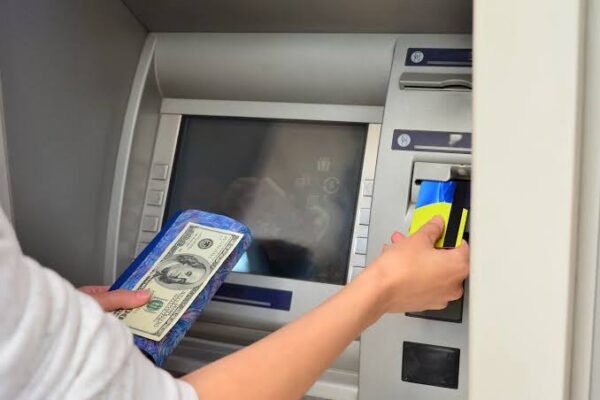
2. Checks Checking Account
With most checking accounts, but not all, you can use the money in your account to pay for things by writing checks. There are also Checkless checking accounts. Since these accounts don’t come with checks, you’ll have to use a debit card to pay for things. Overdraft fees might not apply to this type of account. It could be a good banking option if you can’t remember the last time you wrote a check.
Related: How to Write a Check: A Complete Step-by-Step Guide
3. Premium Checking Account
Most of the time, this account gives you perks that you’d have to pay for otherwise. Some of the benefits of this type of account are a free safe deposit box, free personal checks, free official checks, free money orders, and no fees at some or all ATMs that are not in the bank’s network. However, you will usually need to keep a higher minimum balance on a premium account.
4. Interest-bearing or Money Market Accounts
With these accounts, you pay interest on higher balances. While interest-bearing checking account can be used for purchases, the minimum balance will likely be markedly higher than other checking accounts.
One of the benefits of having this checking account is you are paid interest on these Interest-bearing checking accounts. Some of these accounts may have specific requirements to earn a certain APY, like a minimum direct deposit or a minimum number of debit card transactions.
There may also be limits on how much of your balance earns a certain APY. For example, at some online banks, the APY on interest-checking accounts is higher than the APY on savings or money market accounts.
But online savings and money market accounts are more likely to give you the same APY for balances above a certain level. But they may also have account limits.
Other interest-bearing checking accounts won’t give you as much as a high-yielding savings account. These may be around or even lower than the average yield on a savings account, which is 0.1% APY.
5. Free Checking Account
The free checking account has no minimum balance and no monthly service fee. These accounts are suitable for people who don’t plan to keep a lot of money in their accounts or live paycheck to paycheck.
6. Student Checking Account
Only students can have this checking account for students. Depending on the bank, there is an age limit on who can operate such account.
The good thing about this student checking account is that being a student gives the account holder all the benefits of a basic account without the minimum balance or service fees.
It’s important to remember that a student checking account may be excellent for some people, but if it doesn’t reimburse ATM fees, there may be another better option for you.
Even if your checking account doesn’t say “student” in its name, you should look for a bank that doesn’t charge you to use ATMs outside its network.
7. Joint Checking Account
This basic checking account can be used by two people simultaneously. For example, if two people are married or have other financial ties, it may be easier for them to keep their money in the same place.
8. Business Checking Account
The benefit of this checking account is that a business can help itself run with it. A company might, for example, have one checking account for payroll and another for operating costs. The company can also have other accounts for certain things.
Customers with business checking accounts may have to pay extra fees if they make more than a certain number of transactions. So when comparing business checking accounts, you should pay close attention to these fees if your business gets a lot of cash deposits.
Read also, 16 Best Mobile Payment Apps for Small Businesses
9. Private Bank Checking
For this checking account, you usually need to have a certain amount of money on deposit at a bank. Possible options include making investments and getting loans.
With this type of account, you may get higher debit card limits, free wire transfers, higher Zelle limits, or more ATM withdrawals daily. You may also be able to work with a representative who is responsible for your account.
10. Second-chance Checking Account
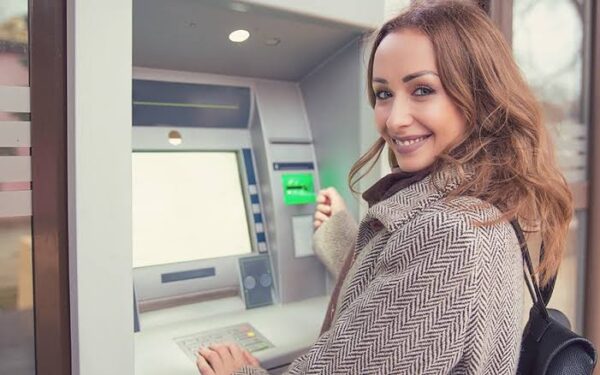
People who can’t get a regular checking account because they’ve had too many overdrafts or negative balances that haven’t been paid should consider second-chance checking. These accounts can help you start over and keep your relationship with a bank in good shape.
Most of the time, second-chance checking accounts don’t have the same features as regular accounts. For example, there might be a monthly service fee, and an overdraft protection against the owner.
However, if you keep this account in good standing for a specific time, the bank may let you switch to a regular checking account.
11. Senior Checking Account
Most of the time, these accounts are for people at least 55 or 60 years old and offer perks, like free checks, to those who qualify.
But don’t just look at the account’s name and think it’s the right one for you without doing some research. For example, you might get a better deal if you open an account that isn’t geared toward seniors.
12. Rewards Checking Account
Using your debit card to buy things, you can earn points or cash back with this checking account. Make sure you read the fine print to see if there are any requirements you need to meet to get some money back.
13 Benefits of Checking Accounts you shouldn’t Overlook
1. Having a Checking Account is a Way to Keep Your Money Safe
It is dangerous to keep a lot of cash at home. Even if you keep it in a safe place, like a safe, a lot of money at home is a target for thieves and can be lost in fires, floods, or other disasters. On the other hand, when you put your money in a bank or credit union, it is kept in a safe place and covered by insurance.
The FDIC insures banks, and the National Credit Union Association insures credit unions up to $250,000 per person and account is covered by both the FDIC and the NCUA.
Related: What Is A Financial Safety Net? And Why Is It Important?
2. Dealing With Checks is Easier With a Checking Account
Our society is set up to benefit people with money in the bank. Most employers don’t pay in cash. Instead, they pay by check or direct deposit. If you don’t have a bank account, it’s clear that you can’t use direct deposit.
Without a bank account, it can be hard even to cash a check. Many banks will cash your paycheck, but you’ll have to pay a fee if you aren’t a member. The benefits of a checking account are that it’s easier and cheaper to get your paychecks put them in the bank, or cash them.
3. It’s Easier to Pay Bills With a Checking Account

Most checking accounts today come with online banking features that are easy to use. One of these features is a dashboard for paying your bills. Use this system to pay your account balance credit card, utility, and other bills.
If you pay the same bill monthly, you can even set up your checking account to pay the bill automatically. In any case, it is easier to pay bills online than with cash or money order.
See How to Change Your Credit Card Due Date
4. Checking Account Gives You More Payment Options
What exactly is a checking account? It’s an account that makes it easy for you to get your money anytime you want.
So, a savings account is meant to be a place to keep your money for a long time, while a checking account gives you a way to keep your money safe while still having easy access.
If you want to keep dealing primarily in cash, you can make deposits and withdrawals often with a checking account. You can also easily use your checking account to pay for numerous online orders.
For example, you can write checks, pay with a debit card, or start a digital transfer with a checking account. With rewards checking account, you can also get rewards while paying for online purchases.
5. All Payments With Checking Accounts are Filed and Tracked Appropriately
One benefit of checking accounts that you shouldn’t overlook is its paper trail. When you pay bills or other expenses with cash, there is also a chance that the money won’t be tracked or filed correctly.
For example, what do you do if you pay a $300 utility bill in cash and the utility company forgets to put the payment on your account?
How can you prove that you paid the bill in the first place? When you pay with cash, a debit card, or online bill pay, statements and transaction ledgers keep track of everything.
So, with a checking account, you can prove every payment you make by looking at the paper trail.
6. Checking Account Makes it Easier to Manage Your Money

One benefit of a checking account you shouldn’t overlook is its flexible online banking features. Online banking features for a checking account make it easy to keep track of your money and pay your bills.
You don’t have to count cash or think about how much money you have hidden in different places. Instead, you can type in a password to get a single view of your finances.
You can connect your account to budgeting apps like Personal Capital, Mint, and Revolut to make managing your money easier.
This is especially helpful for teenagers, who can use a checking account to learn how to make a budget and manage money for the first time.
Related: 30 Budget Busters That Will Hinder Your Savings
7. Checking Accounts Offer More Features than Digital Wallets
People can easily send money to each other online with services like Venmo, Jeton Wallet, and PayPal. Millennials and Gen-Z generation are turning away from traditional banking because of its analog services and other digital wallet apps.
But a checking account still has many more features than any digital wallet app, like direct deposit and paying bills. These are checking account benefits you shouldn’t overlook.
8. There Are No Transaction Limits With Checking Accounts
A checking account offers you some benefits you shouldn’t overlook, especially if you’re trying to build wealth or save money for specific financial goals.
But if you only have room for one kind of account, a checking account is usually the best choice.
One big reason is that there are no limits on how many times you can use your checking account. Most of the time, you can only take money out of or write checks from a savings account a few times monthly.
With a checking account, you don’t have to worry about withdrawal limits, debit card payments, checks, or money transfers. These checking account features give you more freedom with your money in general.
9. With A checking Account, You Can Get Cash From any ATM
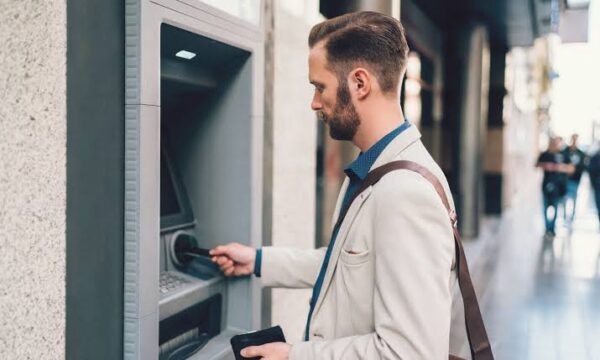
Even though many people who have checking accounts use debit or credit cards for almost all of their payments, ATMs are still a big reason to have one.
If you do need cash, all you have to do is go to an ATM and take out money. If you don’t have a bank account, getting cash depends on how close you are to where the money is kept.
Related: 10 Best Places to Cash a Personal Check Near You (Even Without a Bank Account)
10. Checking Accounts Come With Member-specific Benefits
There are distinct benefits to checking accounts that you should not overlook. For example, many banks and credit unions have exclusive bonuses or incentives for their customers or members. For example:
- Senior checking accounts
- Premium checking accounts
- Rewards checking accounts.
In addition, checking accounts have their own set of advantages.
For example, when you open a Revolut checking account or another checking account, you receive benefits ranging from retail discounts to better insurance offers.
11. Checking Accounts Have Better Interest Rates
Depending on the amount in the account, some types of checking accounts pays you interest. Some checking account lets your money grow just by sitting in it.
However, you should remember that most checking accounts don’t earn interest.
Checking Account and Interest Rates
If you want a checking account that pays you interest, be ready to pay some fees, especially if you can’t keep a minimum balance. This minimum amount is usually the sum of all your bank accounts, such as checking, savings, and certificates of deposit (CDs).
Related: What are Certificate of Deposits
You’ll have to pay monthly service fees if your balance falls below the minimum. Since last year’s survey, the average monthly service fee on interest-bearing accounts has increased by almost 5.5%. A checking account that earns interest costs $16.35 monthly to keep up.
Only a few banks offer free checking accounts that pay interest without any strings attached. But if you’ve been good to your bank for a long time, you might not have to pay your interest-bearing checking account fee.
As a Financial cooperative that focuses on covering operating costs and keeping healthy financial relationships with members, credit unions usually offer lower interest rates on loans and higher savings rates.
Choose a free checking account to make your money go even further.
12. You Money Is Guaranteed By The NCUA
Having your money backed by the NCUA will give you peace of mind. When you have a checking account, you don’t have to carry all your cash or store it in a shoebox in your closet.
If you keep cash at home, many things like theft, fire, or other natural disasters could go wrong. Plus, it’s easy to lose track of your spending. With a checking account, you can see how much money comes in and goes out.
Most checking accounts at traditional banks are insured up to the maximum amount allowed by law by the Federal Deposit Insurance Corporation (FDIC). So you don’t risk losing money if a credit union goes out of business.
Credit unions are part of the National Credit Union Administration, which backs up your account to $250,000.
13. Checking Accounts Offer More Accessibility
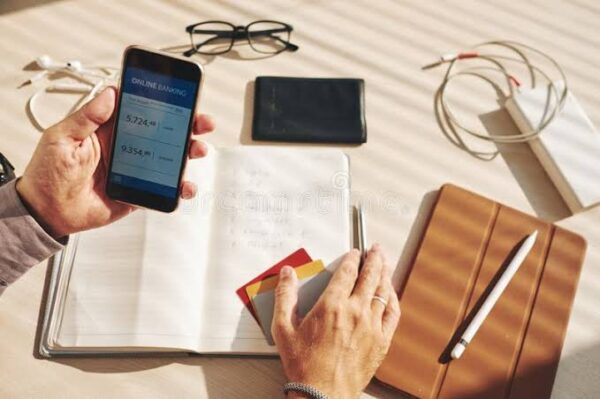
You can get to your money in several ways with a checking account. For example, you can use your debit card to get cash in person or at an ATM. Or, you can use your debit card or checks to access your money so you can shop.
In addition, you can put money into or take money out of your account online or with a mobile app. You can also set up your account to pay your monthly bills.
Benefits of Opening a Free Checking Account
Opening and operating a Checking account sure have its benefits, but how about a free checking account? Monthly fees for a checking account can add up to a lot of money, so it’s best to find a free checking account for everyday banking needs.
The best free checking accounts come with perks like a high annual percentage yield (APY) that pays interest on your balance, reimbursement for ATM fees when you use one outside your network, and free bank checks.
Free checking accounts promise that you won’t have to pay the monthly maintenance fees that many banks charge for checking accounts. However, you will still have to pay some fees, even if you have a free account. So make sure you know the rules that govern your account.
Some banks will waive (or pay back) ATM fees, so knowing which networks your bank is part of is essential. We used each bank’s website’s total number of ATMs to make our best free checking accounts list.
Related article: What Are Card-Not-Present (CNP) Transactions?
Why Opt for a free checking account?
1. Free Checking Account has Lower Fees
You don’t have to worry about paying high fees when you join a credit union. The lower fees are true both for how to become a member and for how to use services once you are a member.
For example, most credit unions let you use ATMs for free and have low overdraft fees.
If you want to be able to invest more money and pay less in fees for your checking account, joining a credit union could be a simple solution.
2. Your Credit Score is Not Required for Opening a Free Checking Account
No matter your credit score, you can join many credit unions and get a free checking account. Sometimes, it takes a quick check to ensure there are no bad reports.
So, if your credit score isn’t as good as it could be, you can come to us for help boosting or rebuilding it.
3. Free Checking Account Has No Minimum Balance Requirements
With a free checking account, you can grow your money without spending any money on bank fees.
It’s hard to manage your money how you want to when so many checking accounts say they’re free but require a minimum balance.
With a free checking account that doesn’t come with any strings, you can keep your account the way you want.
4. No Monthly Service Charge with Free Checking Account
Some banks will charge you a monthly service fee to keep your account open.
Most free checking accounts don’t have this fee, which cuts costs even more. With less red tape, you can just enjoy our services and work on growing your money.
5. Free Checking Account Comes with Unfettered Access
With a Mobile App, Online Banking, and Online Bill Pay, you can get to your account from anywhere with some free checking accounts.
You don’t have to be near your home or Walmart store branch to get your money or pay your bills.
6. Most Free Checking Accounts Have Customer-Friendly Policies
There are a lot of online banking apps that offer free checking account services. Most come with a service team always on hand to provide quality service with a personal touch.
You can always reach out to them when you have a problem. Each is trying hard to offer a better service than its competitors. Take advantage of this.
7. With a Free Checking Account, You Can Have the Convenience Of Shared ATMs And Branches
When you open a free checking account, you can use free ATMs and Co-op Shared Branches all over the country to get your money.
Members can also access their account for free at more than 8,000 7-Elevens shops and more than 300 ATMs in the Austin Alliance of Credit Unions.
8. Some Free Checking Account Gives You Additional Services
When you join a credit union, you get access to more personal banking services and products, such as educational materials that can help you manage your money.
Read 10 Simple Ways To Save Money (Tips For Any Budget!)
Summary: Why You Should Opt for a Free Checking Account
- You have many banking options: you only need a small amount of money to be in your account. Some accounts may not have a minimum balance requirement to open or keep the account open.
- If you have certain checking accounts, you may be able to use any ATM you want for free.
- Paying fees to keep a checking account open isn’t necessary. Instead of giving this money to the bank in fees, save it and use it to pay bills or start an emergency fund.
- Some free checking accounts may give you more perks and benefits, like free checks, cash back on purchases made with your debit card, or a high annual percentage yield (APY).
Read Also, How to Cancel a Pending Transaction on a Credit Card, Debit Card, and PayPal
Cons of Opening a Checking Account
While it’s a good idea to have a checking account to store your funds, there are some potential downsides.
1. A Checking Account is Not likely to Earn interest
Most checking accounts don’t pay interest, but accounts let you earn some interest. This is because money in a checking account is usually treated like cash and used for day-to-day transactions. It is not meant to sit in the checking account for long periods. If you want your money to grow, you might want to open a savings and a checking account.
2. The Potential Fees with Some Checking Accounts
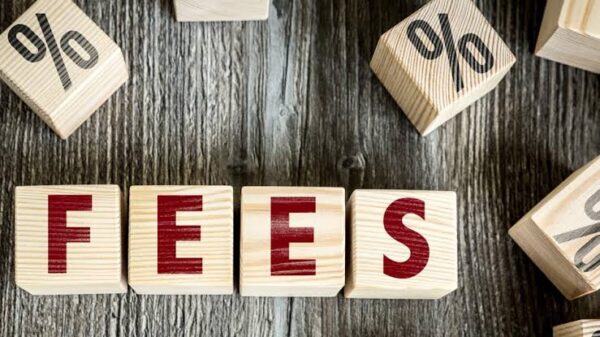
You may incur fees with most checking accounts. Some checking accounts charge a monthly service fee and other fees, such as out-of-network ATM or overdraft fees (if you spend more money than your account balance). Some checking accounts feature monthly service fees that are either waived or not waived.
3. Opening a Checking Account Comes Requires a Minimum Deposit
To open some accounts, you must make a minimum deposit. The minimum deposit may be a disadvantage of a checking account because you must make your initial deposit immediately.
4. Checking Accounts Have Withdrawal limits
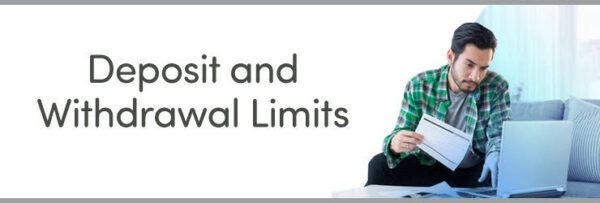
Depending on the bank and the account type, you may have limits on how much you can take out of an ATM or how much you can buy with your debit card daily. But it cannot be good if you need more cash on hand or want to use your debit card to buy something bigger.
Why You Should Never Keep all Your Money in a Checking Account
While we have demonstrated the benefits of keeping the bulk of your financial resources in a che or investment account, you must be careful not to reduce your financial safety net too much.
When your bank account balance drops to zero, you risk getting charged an overdraft fee, which can add up to a significant amount. So you may wonder how much of a buffer you should have in your bank account.
While there is no universally correct answer, the following guidelines can help you determine a reasonable sum to aim for:
Step 1: Total your monthly outlays, including the predictable ones like rent or mortgage, insurance, and utilities, and the more erratic ones like food, entertainment, and transportation.
Step 2: Next, think about the frequency of your payments. Do you receive enough money regularly (weekly, bimonthly, or monthly) to cover those costs? This is crucial if you’re self-employed and don’t receive a regular salary.
Step 3: Consider your income and expenses and determine how much of a buffer you’ll need to feel secure. Aim to have at least one month’s worth of living costs in your checking account.
That way, you won’t have to worry about draining your emergency fund to get by in the near future if you experience a sudden loss of income due to job loss or illness.
It’s not a bad idea to have some cash on hand for unexpected expenses, but not so much that you can’t invest or save more significantly.
Bottom Line
With a checking account, you can deposit funds, transfer funds, make checks, withdraw cash, pay bills, and do other banking functions at a branch, an ATM, or online. T
here are numerous types of checking accounts available to match your needs. Most of them allow you to conduct as many transactions as you desire, and some even provide additional bonuses, perks, and convenience of use.
You should now see the advantages and consider opening a checking account for yourself or your child. Every day, having a checking account can help you in various ways. Most checking accounts can be opened online or in person at a branch.
In addition, many banks allow you to save and spend money as soon as you open an account.
Don’t miss this 13 Best Online Brokerage Accounts: For Beginners And Experienced Investors
Frequently Asked Questions (FAQs)
Q: What is a checking account?
A checking account is a transactional account that people use to make everyday purchases. You can usually get your money by writing a check, using a debit card, or making a cash withdrawal or deposit at a branch or an ATM. Most checking accounts don’t offer interest because they are meant to be used for transactions. However, some checking accounts do show interest.
Q: What is the difference between a checking and savings account?
A checking account is for daily transactions and payments. At the same time, a savings account is intended to keep the money for the long term while earning interest.
Q: How do you use a checking account?
Checking accounts often have minimum balances that must be met to avoid monthly service fees unless the bank waives the fees, which usually happens if the account holder signs up for a direct deposit.
You can use a debit card to buy things in-store, online, or over the phone. Many banks also offer bill pay, which means that the bank will use the money in your account to pay your bills if you sign up for it.
Q: Do checking accounts earn interest?
Checking accounts usually don’t earn interest because they are used for short-term deposits and expenses. But some checking accounts give you interest so you can make money from your account.
So if you plan to keep a large amount of money in your checking account, you might want to look into an interest checking account like Fusion checking.
Q: Are checking accounts insured?
The FDIC protects checking accounts at banks, and the NCUA protects checking accounts at credit unions. Check with your bank to find out how much insurance you can get.
Q: What is a checking account used for?
A checking account is used for things like shopping and paying bills daily. With direct deposit, you can also get your pay the next day instead of waiting up to five days for a paper check to clear.
Q: What is the advantage of having a checking account?
A checking account has numerous benefits.
Safety
There is no need to carry cash.
The NCUA or the FDIC insures your checking account funds.
Your bank gives you payment proof for every transaction.
Improve your credit score
A checking account might assist you in establishing and improving your credit score.
- Payments can be scheduled to ensure they are made on time, affecting your credit score.
Convenience
You may access your money without carrying cash.
- Direct deposit allows you to access your paycheck and other deposits immediately.
- Online banking or debit cards can be used to pay bills and make purchases easily.

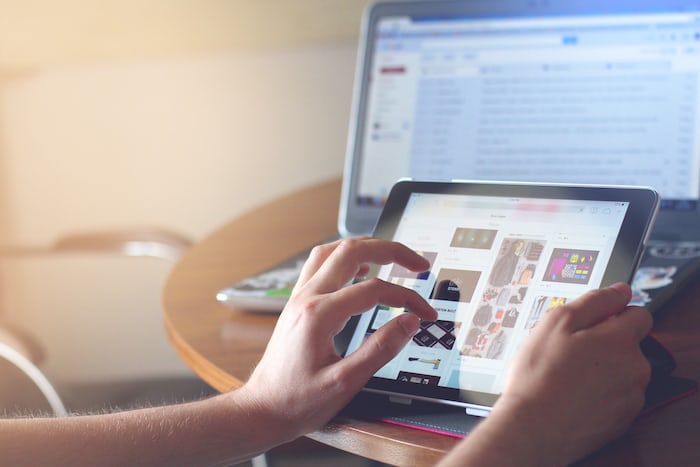
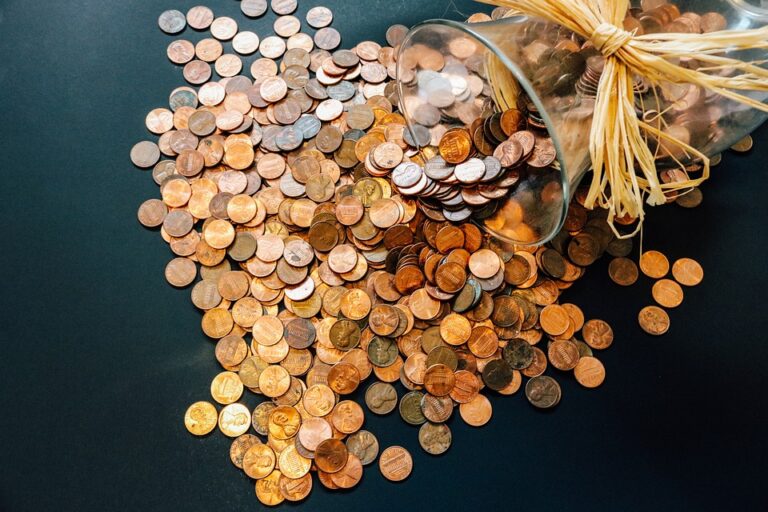
![Can’t Afford to Live on My Own? [Do These 38 Tips]](https://paypant.com/wp-content/uploads/2024/06/Cant-Afford-to-Live-on-My-Own-Do-These-38-768x512.jpg)
